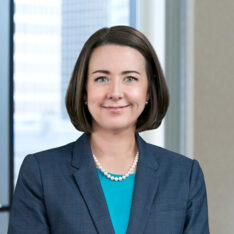If charitable giving is high on your objectives list for your estate plan, one option to consider is using a donor-advised fund (DAF). Indeed, DAFs have been steadily growing in popularity in recent years.
According to the 2023 Donor-Advised Fund Report, the value of DAF grants made to qualified charitable organizations increased 9% in 2023, to $52.16 billion. The number of accounts increased 2.9%, approaching 2 million. What’s the main attraction? Among other things, a DAF can give you greater control over your charitable endeavors than direct donations.
ABCs of DAFs
A DAF generally requires an initial contribution of at least $5,000. It’s typically managed by a financial institution or an independent sponsoring organization, which in return charges an administrative fee based on a percentage of the deposit.
You instruct the DAF how to distribute contributions to the charities of your choice. While deciding which charities to support, your contributions are invested and potentially grow within the account. Then, the charitable organizations you choose are vetted to ensure that they’re qualified to accept DAF funds. Finally, the checks are cut and distributed to the charities.
Normally, contributions to a DAF are made in cash or cash-equivalents. However, depending on the fund, you might also be able to contribute property, such as securities or even real estate in some cases.
DAF benefits
For starters, using a DAF is relatively easy. With all the administrative work and logistics handled for you, you simply make contributions to the fund. It may be possible to transfer securities directly from your bank account.
The contributions you make to the DAF generally are tax deductible. Therefore, if you itemize deductions on your tax return instead of taking the standard deduction, the gifts can offset your current income tax liability. Contributions can be deducted in the tax year in which you make them, rather than waiting until the fund distributes them.
For monetary contributions, you can write off the full amount, up to 60% of your adjusted gross income (AGI) in 2024. Any excess is carried over for five years. For a gift of appreciated property, the donation is equal to the property’s fair market value if you’ve owned the asset for longer than one year, up to 30% of AGI. Any excess is carried over for five years. Otherwise, the deduction for property is limited to your adjusted basis (often your initial cost).
If you prefer, distributions can be made to charities on an anonymous basis. Alternatively, you can name the fund after your family. In either event, DAFs may be created through your will, providing a lasting legacy.
DAF drawbacks
Even so, DAFs have their drawbacks. Despite some misconceptions, you don’t have control over how the charities use the money after it’s disbursed from the DAF.
Also, you can’t personally benefit from your DAF. For instance, you can’t direct that the money should be used to buy tickets to a local fundraiser you want to support. Lastly, detractors have complained about the administrative fees.
The choice is yours
Does a DAF make sense for your situation? If you’re charitably inclined, a DAF may be the right choice. Rely on your estate planning advisor to provide the guidance you need.






